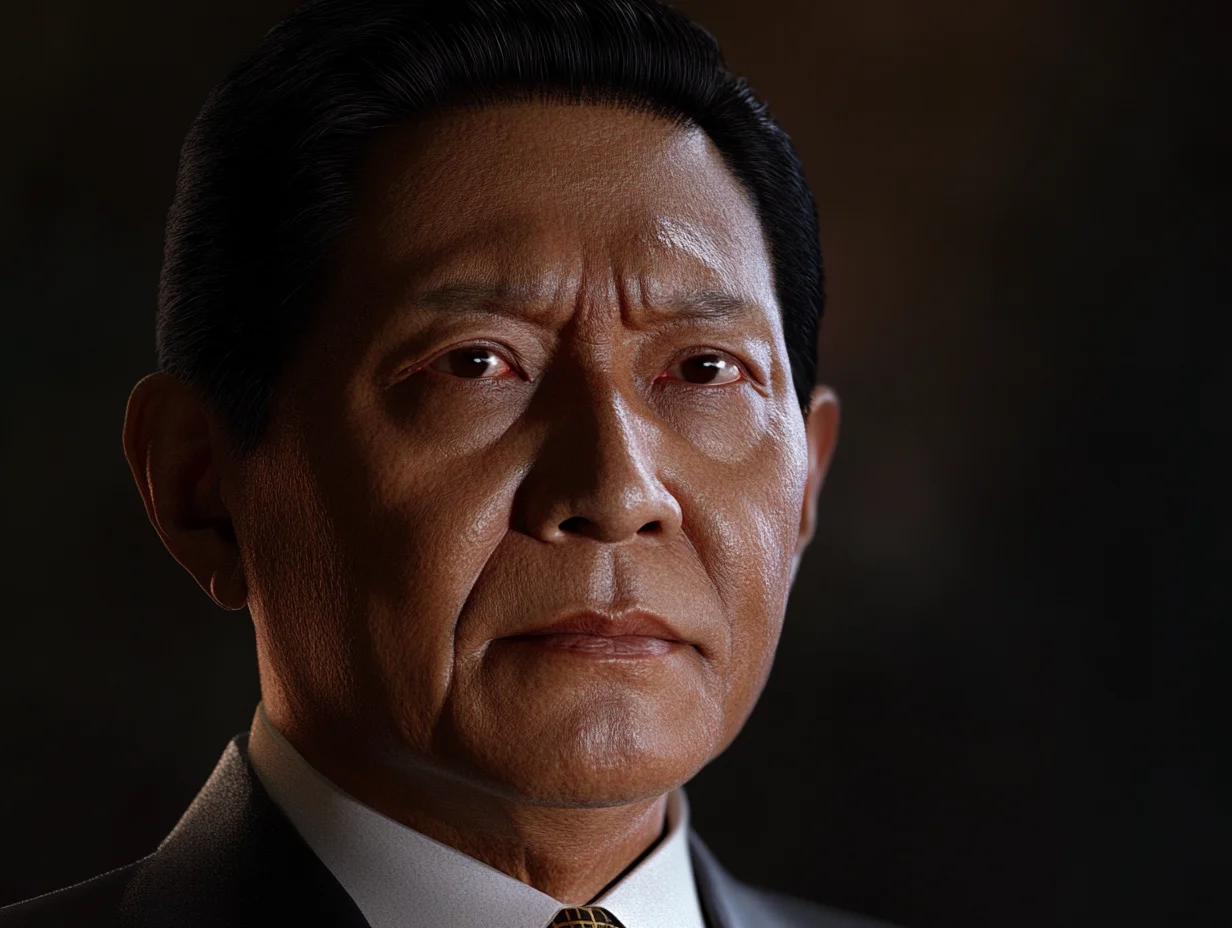POGO Ban in 2025: Why the Philippines is Cracking Down on Offshore Gaming Operations
In 2025, the Philippines will officially end its engagement with the Philippine Offshore Gaming Operators (POGO), a sector that has attracted both significant revenue and controversy since its rise in 2016.
This drastic policy shift, announced by President Ferdinand Marcos Jr. during his 2024 State of the Nation Address (SONA), marks the culmination of years of government scrutiny and mounting public pressure.
The POGO industry, initially seen as a lucrative venture that would boost the local economy by attracting offshore gambling services for foreign markets (primarily China), quickly spiraled into a source of concern.
The industry became notorious for its association with various criminal activities, including money laundering, human trafficking, and financial fraud.
These illegal operations posed serious threats to national security, leading to a tarnished international reputation for the Philippines.
In particular, China had repeatedly called for the cessation of these operations, as POGOs targeted Chinese nationals despite gambling being illegal in China.
As a result, the Philippine government, determined to restore the country’s integrity and safeguard its legal framework, declared a total ban on all POGO operations by the end of 2024.
The move aims to address not just the criminal activities linked to POGOs, but also the broader socio-economic impacts, such as crime surges and exploitation of foreign workers, that have plagued the country since the industry’s rise
The Rise and Fall of POGOs in the Philippines
The Rise of POGO
The Philippine Offshore Gaming Operators (POGOs) emerged in 2016 as part of an initiative by the Philippine government to position the country as a hub for offshore online gaming.
At the time, the idea was to tap into the lucrative global gambling market, particularly targeting foreign players, with China being the largest demographic despite the country’s ban on gambling.
The growth of POGOs was rapid, driven by several key factors:
- Economic Benefits: POGOs brought in significant tax revenues, which at one point contributed billions of pesos annually to the government. For example, by 2019, POGOs were contributing PHP 7 billion in taxes . The influx of foreign workers, primarily from China, also stimulated other sectors such as real estate, hospitality, and food services.
- Employment Opportunities: POGOs created thousands of jobs for Filipinos, from technical positions in IT and customer service to administrative roles. Additionally, the local economy benefited from ancillary services such as leasing, transportation, and retail catering to the industry’s foreign workforce.
- Licensing and Regulation: The Philippine Amusement and Gaming Corporation (PAGCOR) was instrumental in formalizing POGOs, issuing licenses and generating additional revenue through fees. This gave an appearance of regulatory control and helped legitimize the industry in its early years.
The Peak and the Problems From POGO

POGO Philippines Kidnapping Case
By the late 2010s, POGOs had become a significant economic player in the Philippines, but they also began to attract controversy due to several major issues:
- Criminal Activities: POGOs became associated with a rise in criminal activity. Money laundering, human trafficking, and financial fraud were rampant. Chinese nationals working in POGO offices were often exploited, leading to accusations of modern slavery. Several raids on POGO hubs revealed illegal activities, prompting widespread calls for government intervention .
- Strained Diplomatic Relations: Despite the revenue, POGOs strained relations between the Philippines and China. The Chinese government repeatedly urged the Philippines to shut down these operations as they targeted Chinese citizens, who were gambling illegally according to Chinese law. China’s growing frustration added international pressure to the issue .
- Impact on Local Communities: The massive influx of foreign workers caused spikes in real estate prices, making housing less affordable for local Filipinos. There were also numerous reports of increased crime, prostitution rings, and overall societal disruption in areas with a high concentration of POGO operations .
The Fall of POGO
As the industry continued to face increasing scrutiny and controversy, the Philippine government, under the leadership of President Ferdinand Marcos Jr., finally decided to take action.
In his 2024 State of the Nation Address (SONA), Marcos ordered a complete ban on POGO operations by the end of 2024, giving operators until December 31, 2024, to wind down their businesses .
Key reasons for the decline included:
- Rising Crime: The association between POGOs and serious crimes, including kidnappings, money laundering, and human trafficking, became too significant to ignore. The government saw these operations as a threat to national security and the rule of law .
- Economic Shifts: While POGOs initially contributed to the economy, the long-term impact of increased crime and social issues began to outweigh the benefits. The Philippine government recognized that the industry had become more of a liability than an asset, prompting the decision to shut it down .
- Reputation Damage: POGOs were tarnishing the Philippines’ international reputation, especially with the country’s foreign allies like China. As a result, the government prioritized cleaning up the industry to restore the country’s image as a reliable and safe business environment .
The fall of POGOs is emblematic of how rapid, unregulated growth in a sector can lead to a host of unintended consequences.
What started as a promising revenue stream for the Philippines quickly spiraled into a national concern, with POGOs becoming synonymous with crime, exploitation, and strained foreign relations.
The decision to shut down POGOs marks a significant turning point for the country, as it looks to refocus on more sustainable and lawful industries for its future economic growth.
Why the POGO Ban Was Necessary
The ban on Philippine Offshore Gaming Operators (POGOs) was deemed necessary due to a variety of interrelated issues that emerged as the industry expanded.
While POGOs initially promised economic benefits, their growing association with illegal activities, national security threats, and international diplomatic pressures led the Philippine government to take decisive action.
Below are the key reasons behind the necessity of the POGO ban.
1. Criminal Activities and Social Impact

POGO Philippines Criminal Activities and Social Impact
One of the most pressing reasons for the ban was the rampant criminal activity associated with the POGO industry.
Over time, POGOs became notorious for being involved in money laundering, human trafficking, kidnappings, and other forms of financial and organized crime.
The industry also brought in a large influx of foreign workers, many of whom were subjected to exploitation and abuse.
Chinese nationals, in particular, were often lured to the Philippines under false pretenses and forced into illegal work under poor conditions.
Additionally, POGOs attracted criminal syndicates, making it more challenging for local authorities to manage the escalating violence and illegal activities.
This proliferation of crime prompted multiple government crackdowns on POGO hubs, but the issue became too entrenched to be resolved through regulation alone.
The social costs—rising crime rates, pressure on local resources, and community disruption—outweighed the economic benefits .
2. National Security Threats
POGOs also posed a significant threat to the national security of the Philippines.
With the large number of foreign workers entering the country, many without proper documentation or background checks, the risk of espionage and cybercrime increased.
The unregulated financial transactions and money flows from offshore gaming operations left the country vulnerable to exploitation by international crime syndicates.
These organizations used the POGO industry as a front for money laundering, funneling vast amounts of illicit funds through the system.
This heightened the need for stricter control over the financial sector and cyber systems .
Given these risks, many government officials and security experts raised concerns that POGOs could serve as conduits for larger criminal networks, potentially compromising the country’s digital and financial infrastructure.
As a result, banning POGOs became a national security priority.
3. Economic and Social Consequences

POGO Philippines Economic and Social Consequences
While POGOs did contribute to government revenues—primarily through taxes and licensing fees—their long-term economic impact was increasingly viewed as negative.
The economic boost from POGOs was overshadowed by the rising costs of crime, corruption, and societal disruption.
Housing markets in areas populated by POGO workers saw skyrocketing prices, creating housing shortages and pricing out local Filipinos.
Moreover, the presence of POGOs led to a spike in illegal activities like prostitution rings and increased violence in certain areas, requiring more law enforcement resources to manage.
The strain on public resources, such as healthcare and policing, became unsustainable as the social issues around POGOs grew .
4. International Diplomatic Pressure
The Philippines faced diplomatic pressure from other nations, particularly China, to shut down POGO operations.
Most of the customers for POGO services were Chinese nationals, and gambling is illegal in China.
This led to tension between the two countries, with China consistently urging the Philippines to cease the operations.
China argued that POGOs were not only exploiting Chinese citizens but also fuelling corruption and crime within its borders.
The Chinese government also pointed to the exploitation of Chinese workers employed in the Philippines’ POGO sector, many of whom were trafficked into the country and subjected to poor working conditions .
This diplomatic pressure, combined with the rise in bilateral issues between the two countries, added another layer of urgency to the Philippines’ decision to ban POGOs.
China’s government expressed satisfaction with President Marcos’ decision to ban the operations, aligning the move with international anti-corruption and anti-crime efforts.
5. Damage to the Philippines’ International Reputation Arising From POGOs
The continued operation of POGOs, despite the associated criminal activities and diplomatic tensions, began to harm the Philippines’ international reputation.
The country was increasingly viewed as a haven for illegal operations and financial fraud, which undermined investor confidence and jeopardized legitimate business activities.
By banning POGOs, the Philippine government aimed to restore its image as a lawful and business-friendly environment.
The move was seen as a step toward cleaning up the country’s gaming industry and creating a more transparent, regulated market for legitimate operators.
This would also help attract more sustainable, law-abiding foreign investments .
The decision to ban POGOs was necessary due to the overwhelming evidence of criminal activities, the threat to national security, diplomatic pressures, and the long-term economic and social harm caused by the industry.
While the short-term loss of revenue is a consideration, the Philippines government has chosen to prioritize law and order, public safety, and the country’s reputation on the global stage by eliminating POGOs from its economy by the end of 2024.
What’s Next for the Philippine Gambling Industry After the Fall of POGO?
With the impending ban on Philippine Offshore Gaming Operators (POGOs) set to take effect in 2025, the country’s gambling industry is at a critical juncture.
First of all, we believe that JILI Philippines would first take the biggest hit given its position as the No.1 online slot games in Philippines.
The Philippine government has made it clear that the focus is now on promoting a more transparent, regulated, and secure gambling ecosystem.
Here’s what the future could look like for the Philippine gambling industry post-POGO:
1. Focus on Regulated, Local Operations
While POGOs will be phased out, the local gambling industry remains strong and is expected to play a pivotal role in filling the gap left by offshore operators.
The Philippine Amusement and Gaming Corporation (PAGCOR) will continue to regulate land-based and licensed online casinos, ensuring they comply with strict standards of transparency, security, and fairness.
This shift will likely emphasize:
- Licensed land-based casinos: The Philippines has long been home to large, internationally recognized casino resorts, particularly in Entertainment City, Manila. These resorts, including Solaire Resort & Casino, Okada Manila, and City of Dreams, attract high-profile international tourists. By focusing on this sector, the country can promote legal and regulated gaming experiences.
- Online gambling platforms: With the rise of regulated online casinos, players will still have access to digital gaming experiences but through fully licensed and monitored platforms. These online casinos are expected to become more popular as internet access expands and mobile gaming grows.
2. Increase in Government Revenues from Local Casinos
As POGOs phase out, local casinos will likely see a surge in both domestic and international clientele, filling the gap in government revenue.
PAGCOR’s regulation of these casinos will be crucial in maintaining a healthy revenue stream.
In 2022, local casinos generated PHP 214.3 billion ($4 billion USD) in gross gaming revenue, a number that could increase as the government promotes legal gambling establishments over offshore operators .
3. A Push for Responsible Gambling and Player Protection
One of the key areas of focus for the future of the Philippine gambling industry will be responsible gambling.
With POGOs often associated with illegal and predatory practices, local operators are expected to implement stricter policies to promote safe gambling.
PAGCOR will likely introduce more comprehensive responsible gambling programs, including:
- Self-exclusion options: Players can voluntarily exclude themselves from casinos and online gambling sites to prevent addiction.
- Limits on spending and deposits: Licensed operators may introduce mandatory limits to curb excessive gambling.
- Educational campaigns: Public awareness campaigns on the risks of gambling addiction will become more common, encouraging players to gamble responsibly.
4. Boosting Tourism and Entertainment
The Philippines is already a key player in the Asian gambling and entertainment industry, thanks to its integrated casino resorts.
With POGOs out of the picture, there will be renewed focus on promoting the Philippines as a destination for tourism, entertainment, and gaming.
Casino resorts are expected to double down on providing world-class amenities and services that go beyond gambling, such as luxury hotels, restaurants, entertainment shows, and shopping centers.
This diversification could attract more tourists, especially as travel restrictions ease post-pandemic, making the Philippines a hotspot for regional and international travelers looking for premium gambling and entertainment experiences .
5. Attracting Legitimate Foreign Investments
The ban on POGOs might initially seem like a deterrent for foreign investment in the gambling sector.
However, the move is likely to have the opposite effect. By cleaning up the industry and focusing on legal, regulated gaming, the Philippines can attract more legitimate foreign investors looking for transparent and stable business environments.
Foreign investments in areas like online gaming infrastructure and casino expansion projects are expected to rise as investors become more confident in the country’s commitment to regulation and fair play.
This could help modernize the industry, introducing new technology and innovations to both land-based and online casinos .
6. Potential Expansion into Other Forms of Regulated Gambling
Apart from casinos and online gambling, the Philippines may also look to expand into other areas of the gaming industry.
This includes:
- Sports betting: With the growing popularity of sports like basketball and esports in the Philippines, licensed sports betting platforms could emerge as a new revenue stream.
- Lotteries and e-bingo: PAGCOR has already regulated lotteries and electronic bingo games, which could be further expanded to cater to a larger domestic audience.
The post-POGO future for the Philippine gambling industry is expected to be one of restructuring and modernization.
By focusing on legal, regulated operations, the government aims to create a safer, more transparent, and lucrative industry.
While the loss of POGO revenues will be felt, the rise of regulated casinos, online gaming platforms, and the broader entertainment sector is expected to compensate, helping the Philippines remain a key player in the Asian gambling market.
Conclusion
The 2025 POGO ban marks a significant shift in the Philippines’ approach to online gambling.
After years of criminal controversies and social issues, the government’s decision to shut down all POGOs reflects its commitment to restoring law and order while safeguarding the country’s economic and social fabric.
As POGOs exit the scene, the focus will likely shift toward promoting regulated, legitimate gaming ventures that can sustain the country’s reputation as a global entertainment and tourism hub.





Leave A Comment